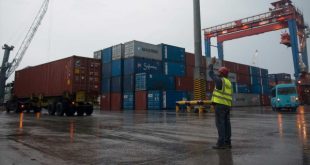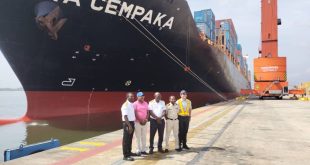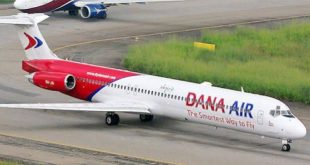The absence of intra- regional connectivity has been identified as a prime factor that could impede the flow of trade in Africa within the context of the African Continental Free Trade Agreement(AfCFTA).
This has become a major preoccupation of maritime and trade experts in Africa for more than a decade now. It was a key topic of discussion at the Sub-regional workshop on Transport Costs and Connectivity of West and Central African countries in 2016 and yet at the recently concluded 9th African Shippers’ Day in Lagos Nigeria, it featured as a key highlight in the Communique of the three days event.

Essentially, Connectivity refers to the physical, institutional and people –to-people linkages that make up the foundational support and facilitative means to achieve the economic, political , security and socio-cultural pillars towards realizing the vision of an integrated Africa.
As posited by trade experts, the varieties of topography and vastness of Africa make movement of good and persons whether by road, rail, sea and air a huge challenge. Therefore, as essential transactions and movements are delayed or disrupted, transport costs rise and time is also lost.

Consequently, there is the need to explore ways of integrating and simplifying transport infrastructure in the region because there is a correlation between connectivity and transport cost.

Intra-regional connectivity is expected to enhance trade, investment, tourism, promote economic growth and development as well as narrow development gaps and connect member states within the regions and rest of the world.
The 9th edition of the African Shippers’ Day was more specific on the type and scale of connectivity as it called for the development of port connectivity, seeking that modalities and measures should be put in place to promote direct connectivity of all ports in the continent to improve intra-African trade.
The event was organized by the Nigerian Shippers’ Council in collaboration with the Union of African Shippers’ Councils (UASC) under the auspices of the Federal Ministry of Transportation.
It took place between 16th and 18th January, 2023 at Oriental Hotel, Lagos, Nigeria.
The purpose of the African Shippers’ Day is to bring shippers within the West and Central African sub-region together to exchange ideas and experiences on contemporary issues as well as showcase their products to enable them network and conduct business to business transactions.
The theme of the 9th edition of the African Shippers Day was “African Continental Free Trade Agreement: A Veritable Platform to Mainstream African Shippers into Global Trade”
Four papers were presented at the programme by distinguished experts. They are: AfCFTA; Vehicle for Africa’s Economic Growth and Development; The Role of INCOTERMS 2020 in the implementation of African Continental Free Trade Agreement; Payment Systems in International Trade; Coastal Shipping: A Sine qua non for Integration of Trade in Africa.
Consequently, the participants enjoined member countries to develop Coastal Shipping and Inland Waterways transportation to enhance movement of cargoes between African countries and their hinterlands, calling on member countries to ensure that adequate measures are put in place to eliminate tariff and non-tariff barriers that are negatively impacting on trade flows in Africa.
Member countries of West and Central African were called upon to integrate their transportation systems with that of their immediate neighbours to enhance movement of passengers and freights within the continent without disruptions along the transport corridors.
The participants also called on Legislatures in the continent to expedite action in domesticating international trade conventions and treaties to promote fair trade practices amongst member countries.
Realizing the need for vessel ownership by Africans global shipping competitive market, the conference called for investment in the ownership of vessels in Africa, emphasizing that it should be given priority attention and promoted to ensure that freight paid in the carriage of cargo remain within the continent.
They also sought the development and use of all modes of transportation to reduce cost of transportation and promote efficiency, more investments should be deployed to the improvement of transport infrastructure and equipment within the continent by member countries.
Adequate support and grants should be deployed by member countries for research and development in the continent to develop technologies that would address the peculiar transport and logistics challenges of the continent.
The participants further canvassed for the use of automated processes in handling logistics activities, asserting it will reduce delays and minimize the cost of doing business.
According to them, adequate sensitization on AfCFTA and training of all stakeholders in the trade and transport sector should be encouraged to ensure proper implementations of the trade agreement for enhanced efficiency in the African continent.
Enabling business environment and awareness should be created to encourage more private sector participation in the trade and transport sector within the continent even as member countries should strive to identify areas of competitive advantage and develop those areas in order to maximize returns on their investments.
Miffed by the disadvantage position paucity of containers has placed African shippers, the conference called for the creation of container production centre within Africa, adding that investments in the building of container boxes should be promoted by member countries to address the high charges levied on African shippers for the use of container boxes by shipping services providers.
The Communiqué noted that the Union of African Shippers’ Council(UASC) should revisit the implementation of Sealed Grid system in the sub-region, where sealed cargo can pass through different borders from origin to destination without being opened by government agencies along the transport corridors.
Application of harmonized standards and rules to facilitate trade was deemed relevant hence they called on member countries to encourage the application of uniformity and same standards and rules for the processing and clearance of cargoes.
Observing the need for better product marketing, the participants emphasized that there should be value addition on raw materials before exportation to increase their value and create jobs in the continent.
Member countries were asked to develop modalities to formalize informal trade in their various countries depending on their peculiar situations, while the resolutions of the conference should be implemented using monitoring models to measure Key Performance Indicators (KPIs) with timelines to achieve desired outcomes
Banks and insurance companies in the continent should be strengthened by member countries to guarantee payments on all categories of trade for shippers in local currencies across borders, even as member countries should strive to create awareness on the benefits of integrated payments system amongst African countries to promote intra-African trade.
The event was organized by Nigerian Shippers’ Council in conjunction with the Union of African Shippers Council(UASC).
 MMS PLUS NG – Maritime, Aviation, Business, Oil and Gas News Online Newspaper with coverage in Maritime, Oil and Gas, Aviation, Power and Energy as well as Financial News
MMS PLUS NG – Maritime, Aviation, Business, Oil and Gas News Online Newspaper with coverage in Maritime, Oil and Gas, Aviation, Power and Energy as well as Financial News










